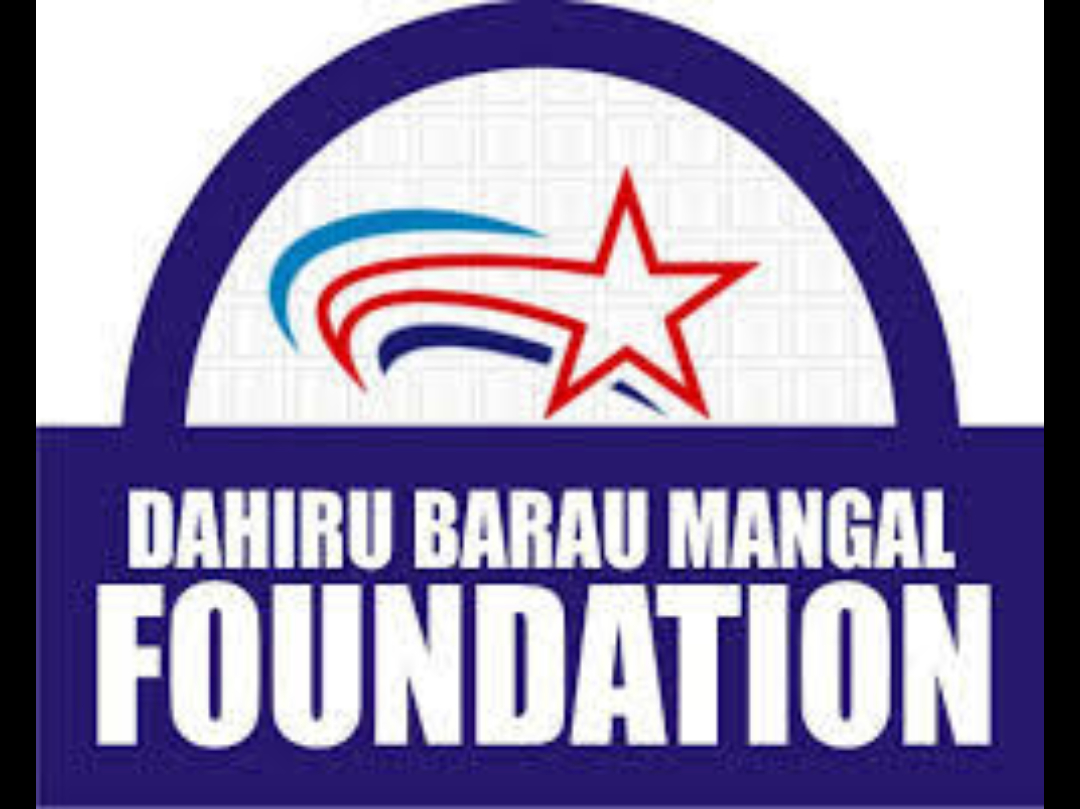Health
FG Promises Access To Eye Care For Every Nigerian

Dr Iziaq Salako, the Minister of State for Health and Social Welfare says the Federal Government will ensure that every Nigerian has access to the eye care they need.
Salako said this in Abuja on Thursday at the Eyeball Summit organized by the Optometrists and Dispensing Opticians Registration Board of Nigeria (ODORBN).
The summit’s theme was “Shaping the Future of Eye Care in Nigeria: Strengthening Systems Through Strategic Alliances”.
According to Salako, the theme is quite apt and aligns with the ministry’s current line of investment in the health sector.
He said that it also aligned with the overall goal of the Renewed Hope Agenda to ensure that Nigerians are provided with the healthcare they need at any point in time without financial hardship.
He said that in the face of rising challenges, such as the increasing burden of visual impairment and the growing demand for eye care services, the ministry may not address the issue of eye health in isolation.
“By working together, we can ensure that every Nigerian, regardless of their geographical location or economic status, has access to the eye care they need.
“This summit serves as an important platform to collectively strategise and propose concrete solutions that can strengthen the eye care system in Nigeria.
“It can not be optimally productive without strategic alliances, collaboration and cooperation.
“It is through partnerships that we can pool resources, share expertise and develop innovative solutions to overcome the gaps in eye care provision,” Salako said .
According to him, it will include increasing awareness about the importance of regular eye check-ups, ensuring that the necessary infrastructure and human resources are in place to support the delivery of services.
He said that the partnership would also promote eye health friendly policies and provide continuous professional development training to ensure that eye health care givers are up to date in their knowledge and skills.
“The government is committed to ensuring that you have the necessary tools, policies, and an enabling environment to carry out your work effectively.
“Under this administration, we will continue to expand access to affordable eye care services, which are critical in a country where a large proportion of the population live in underserved areas,” he said.
Dr Obinna Awiaka, Registrar of the board, said that the summit was, a testament to their collective commitment, resilience, and aspiration.
Awiaka said that it symbolised the board’s relentless pursuit of excellence, the prioritisation of knowledge, innovation, partnership, and an unyielding devotion to preserving and enhancing the gift of sight for all Nigerians.
According to him, in an era marked by rapid technological change, shifting patient needs, and complex healthcare challenges, it is imperative that the custodians of vision health, stay ahead of the curve.
“We must constantly evolve, embracing innovation while upholding the highest ethical and professional standards.
“The theme speaks to a fundamental truth: No single entity, no matter how skilled or committed, can achieve transformative change alone,” he said.(NAN)
Health
NAFDAC Intensifies Regulatory, Sensitization Activities in Yobe

The National Agency for Food and Drug Administration and Control (NAFDAC) says it intensified regulatory and public sensitization activities across Yobe in the first half of 2025.
Mr. Lawan Dadingelma, Yobe Coordinator of NAFDAC, made this known in an interview on Wednesday in Damaturu.
Dadingelma said the agency embarked on various campaigns and enforcement actions to ensure public safety and compliance with regulatory standards.
He said that the office carried out sensitisation exercises at the fruit and vegetable markets in Damaturu and Gashua, warning against the use of calcium carbide for ripening fruits and vegetables.
He said that the public was also sensitised on the dangers of using harmful chemicals to preserve agricultural produce such as beans, groundnuts, millet, and other food items.
Dadingelma said that the agency equally held meetings with associations of water and bakery producers to promote adherence to safety standards.
He added that the agency conducted awareness sessions on good warehousing practices for drinks and soft drinks.
“NAFDAC intensified regulatory monitoring activities in Damaturu, Potiskum, Gashua, and Geidam Local Government Areas, focusing on water production and bakeries.
“We also held an engagement with herbal product manufacturers in the state and sensitised local rice millers in Potiskum on best practices.
“Sanctions were imposed on patent medicine vendors found violating regulations, while drug hawkers across the state were similarly penalised.
“The agency also engaged NGOs, including the Society for Family Health, to enhance collaborative public health advocacy,” he said.
Dadingelma pointed out that the efforts were part of their mandate to safeguard public health and ensure that all regulated products met required safety standards. (NAN)
Health
Flooding: Monarch Introduces Weekly Environmental Sanitation

The Paramount Ruler of all Awori-speaking people, Oba Sulaiman Adekunle Bamigbade, Ayodele III, has directed residents of estates and communities within his domain to commence weekly environmental sanitation to mitigate the risk of flooding.
In a letter dated June 11, 2025, addressed to leaders and residents of various estates and communities under his jurisdiction, Oba Bamigbade stated that the decision was in response to predictions of heavy rainfall and potential flooding in the coming months.
According to the letter, which was made available to newsmen and signed by the monarch himself, the move aligns with recent warnings by the Nigerian Meteorological Agency (NiMET), which forecasted flooding in several states across the country due to expected intense rainfall.
“In light of the recent flooding predictions issued by the Nigerian Meteorological Agency (NiMET), it has become imperative for communities within our domain to take proactive steps towards safeguarding our environment and the wellbeing of our residents,” the monarch stated.
“To this end, I am calling for a mandatory weekly sanitation exercise across all estates within the Isheri Estates Community,” he added.
During the weekly exercise, residents are expected to clear drains, de-silt gutters, and properly dispose of domestic waste, among other activities to ensure a clean and flood-free environment.
Oba Bamigbade emphasized that there would be strict monitoring to ensure compliance, noting that he would personally visit estates and communities to assess adherence.
He further stated that the palace and its surrounding areas would take the lead in the exercise and that information regarding the sanitation directive would be disseminated to the grassroots to ensure widespread awareness.
The monarch’s initiative is part of a broader community effort to promote environmental responsibility and prevent avoidable disasters during the rainy season.
| ReplyReply allForwardAdd reaction |
Health
Foundation Sponsors Urology Surgery for 3,000 Vulnerable Patients in Katsina

No fewer than 3,000 vulnerable patients have benefited from the Alhaji Dahiru Mangal Foundation’s urology surgery intervention in Katsina State.
Alhaji Mangal, a philanthropist, has spent about N80 million since inception of the sponsored surgery project in the state.
Husaaini Kabir, a Board of Trustees (BOT) member of Mangal Foundation disclosed this during the launch of the exercise in Katsina on Saturday.
He explained that urology was part of healthcare that deals with diseases of the urinary tract (kidneys, ureters, bladder and urethra).
Kabir said that since the commencement of the exercise, no fewer than 3,000 vulnerable patients have benefited in about 10 exercises conducted previously in the state.
According to him, about N20 million has been earmarked to sponsor no fewer than 100 patients during the second quarter of the year.
He noted that drugs would be provided free for those whose condition did not require surgery after being checked.
Kabir disclosed that the exercise was part of the foundation’s Corporate Social Responsibility (CSR), aimed at giving back to the society, especially to the less privileged.
The BOT member added that people from different villages within the state, neighbouring states and also from Niger Republic, were equally benefiting from the gesture.
He said that the objective was to alleviate the burden of healthcare costs on the most vulnerable people, as many of them struggled to meet basic needs.
Kabir said the foundation had engaged the best medical team, adding that patients could also be screened at the Amadi Rimi Orthopaedic Hospital, in Batagarawa Local Government Area of the state.
He said: “The foundation has engaged the best medical team and procured high quality drugs and medical equipment for the surgery.
“The foundation is exclusively for empowerment, development, educational, charitable purposes and for supporting the poor and vulnerable in the area of healthcare and economic skill.”
He revealed that the foundation, which was established in 2016, had sponsored eye, hernia, and hydrocele surgical operations for thousands of vulnerable patients.
Responding, a beneficiary and staff of Katsina State Polytechnic, Malam Adamu Aliyu, commended the sponsor, saying that he was happy to be one of the beneficiaries.
He said that it was quite a relief as his meagre salary could not afford him the surgery.
Aliyu and other beneficiaries called on government, private organisations, and other wealthy individuals to emulate the gesture extended by the foundation.





















